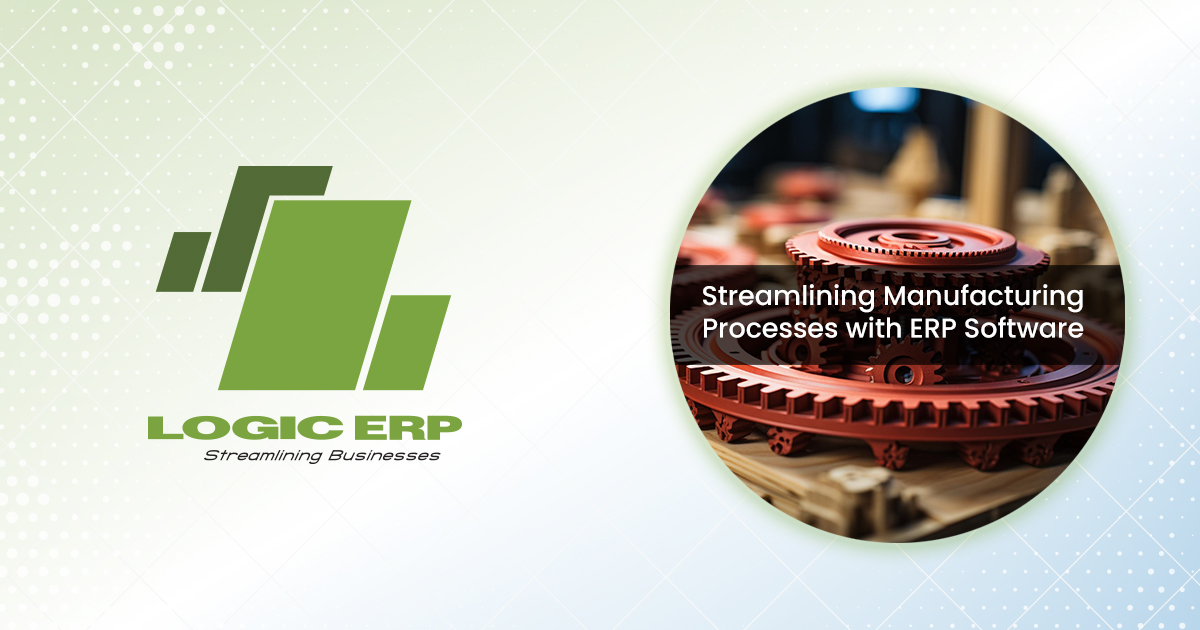

In today’s highly competitive business landscape, manufacturers are constantly seeking ways to improve efficiency, reduce costs, and enhance productivity. One of the most powerful tools at their disposal is Manufacturing ERP (Enterprise Resource Planning) software. This innovative technology is revolutionizing the manufacturing industry by streamlining processes, optimizing resource utilization, and ultimately boosting profitability. In this blog, we’ll delve into the world of Manufacturing ERP software and explore how it helps organizations achieve operational excellence.
Understanding Manufacturing ERP Software
Manufacturing ERP software is a comprehensive solution designed to integrate and automate various aspects of the manufacturing process. It offers a centralized platform that facilitates seamless communication and collaboration across different departments, from production and inventory management to procurement and quality control.
The key features of manufacturing ERP software include:
-
Inventory Management: Real-time tracking of raw materials, work-in-progress, and finished goods helps manufacturers maintain optimal inventory levels, reducing carrying costs and minimizing stock outs through Inventory management software.
-
Production Planning: Manufacturing ERP systems assist in creating detailed production schedules, allocating resources efficiently, and ensuring timely order fulfillment.
-
Quality Control: These systems incorporate quality control modules that monitor product quality at various stages of production, helping to identify and rectify defects before they reach the customer.
-
Supply Chain Management: Manufacturing ERP software enables better supplier relationship management, timely procurement of materials, and accurate demand forecasting, reducing supply chain disruptions.
-
Cost Control: By providing real-time cost analysis and tracking, ERP software helps manufacturers identify cost-saving opportunities and optimize their spending.
-
Reporting and Analytics: Robust reporting and analytics tools offer valuable insights into production performance, enabling data-driven decision-making.
Now, let’s dive into the ways Manufacturing ERP software streamlines manufacturing processes.
1. Enhanced Visibility and Transparency
Manufacturing ERP software provides a holistic view of the entire manufacturing operation. This real-time visibility allows management and production teams to monitor every aspect of the process, from order status to inventory levels. With accurate and up-to-date information at their fingertips, decision-makers can respond promptly to changing conditions, identify bottlenecks, and allocate resources where they are needed most. This transparency also enhances communication between departments, fostering collaboration and reducing the chances of errors or miscommunications.
2. Efficient Resource Allocation
Resource management is a critical aspect of manufacturing. Manufacturing ERP software helps companies allocate resources more efficiently by providing insights into capacity utilization, labor requirements, and machine availability. By optimizing these resources, manufacturers can minimize downtime, reduce lead times, and increase overall productivity.
3. Streamlined Production Planning
Effective production planning is vital for meeting customer demand while minimizing waste and costs. Manufacturing ERP systems offer advanced planning tools that consider various factors, including resource availability, order priority, and lead times. This results in more accurate production schedules, reduced setup times, and improved on-time delivery performance.
4. Improved Inventory Control
Manufacturers often struggle with maintaining the right inventory levels – too much can tie up capital, while too little can lead to production delays. Manufacturing ERP software helps organizations strike the right balance by offering real-time inventory tracking and automated reorder points. This ensures that materials are available when needed without overstocking or understocking.
5. Quality Assurance
Quality control is paramount in manufacturing, as product defects can lead to costly recalls and damage a company’s reputation. Manufacturing ERP software includes quality control modules that enable manufacturers to monitor quality at every stage of production. By detecting and addressing issues early in the process, companies can reduce waste, improve product quality, and enhance customer satisfaction.
6. Cost Reduction
Manufacturing ERP software provides a clear picture of production costs, allowing organizations to identify areas where cost savings can be realized. This could involve optimizing resource allocation, reducing waste, or renegotiating supplier contracts. By making data-driven decisions and continuously monitoring expenses, manufacturers can drive down costs and improve profitability.
7. Compliance and Regulatory Requirements
Manufacturers often operate in industries with strict regulatory requirements. Manufacturing ERP systems can help companies stay compliant by tracking and documenting processes, materials, and quality control measures. This reduces the risk of non-compliance and associated fines, ensuring that products meet industry standards and customer expectations.
8. Scalability and Growth
As businesses expand, their manufacturing requirements evolve. Manufacturing ERP software is highly scalable and can adapt to changing needs. Whether a company is adding new product lines, expanding into new markets, or increasing production capacity, the ERP system can accommodate these changes seamlessly, supporting growth and expansion.
Conclusion
Manufacturing ERP software is a game-changer for organizations looking to streamline their manufacturing processes. It offers a wide range of benefits, from enhanced visibility and resource allocation to improved production planning, quality control, cost reduction, and compliance management. With the power of manufacturing ERP systems, companies can stay competitive in today’s dynamic business environment, respond to customer demands more efficiently, and ultimately drive higher profitability.
In summary, manufacturing ERP software is not just a tool; it’s a strategic investment that can transform manufacturing operations and set the stage for sustainable growth and success in the ever-evolving manufacturing landscape. If your manufacturing business is looking to gain a competitive edge and optimize its processes, then explore LOGIC ERP and achieve operational excellence.

